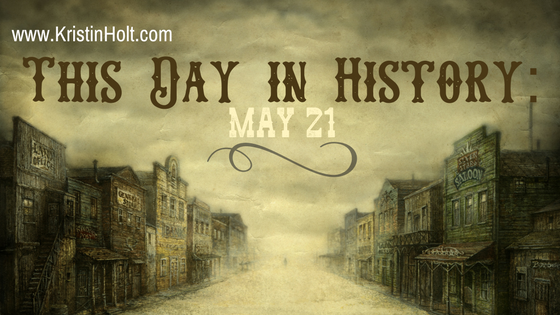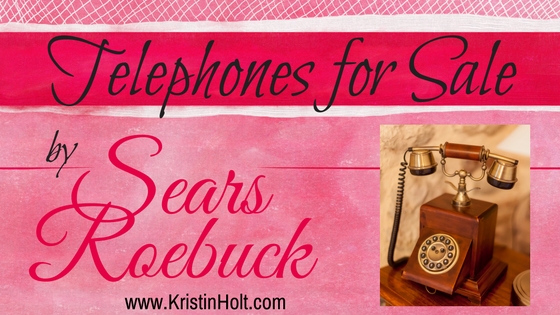
by Kristin Holt | Dec 30, 2017 | Articles
As an amateur historian, I’m thrilled to share my five-star Goodreads Review of author Mary Cable’s The Blizzard of 88. This nonfiction account of how and why this great blizzard impacted life in 1888 from Maine to Washington, crippling New York City. Can’t recommend this title enough!

by Kristin Holt | May 21, 2017 | Articles
One hundred and thirty-seven years ago, today, was May 21, 1880. Three newspapers (two from Kansas and one from Louisiana) covered three timely subjects–two of which surprised me deeply. One–Leap Year–I knew about and had become comfortable with. But wait until you see the other two. Technology in 1880 was far more advanced than I realized…you might be equally surprised.

by Kristin Holt | Apr 10, 2017 | Articles
“Nineteenth Century Problems” is a bit of poking fun at today’s “First World Problems” tongue-in-cheek humor…the challenges we face today because we have a life of ease. I came across the Nineteenth Century practice of allowing barnyard animals free run of the surrounding neighborhood–not a problem until their presence (and eating habits, and messes)–became an inconvenience of that growing town. Read vintage newspaper clippings about this challenge and the dangers it posed, along with a separate, serious threat of the late Nineteenth Century; now that’s a serious problem!

by Kristin Holt | Mar 11, 2017 | Articles
The decade of the 1880s proved among the most disastrous, desperate, life-threatening (and life-taking)–as winter in North America was at an extreme, the whole decade long. Climatologists have theories we understand today, but were unknown to our Victorian American ancestors. If you read a fictional book set in the 1880s, that touches on a mild winter, be surprised. Today, March 11th, is the anniversary of “the big one”.

by Kristin Holt | Sep 1, 2016 | Articles
Along with just about anything a late 19th century household could desire to obtain, Sears, Roebuck & Co. offered telephones for sale. Sears offered the newest telephone technology…until the turn of the century. The 1902 catalog is devoid of telephones. Any idea why?













